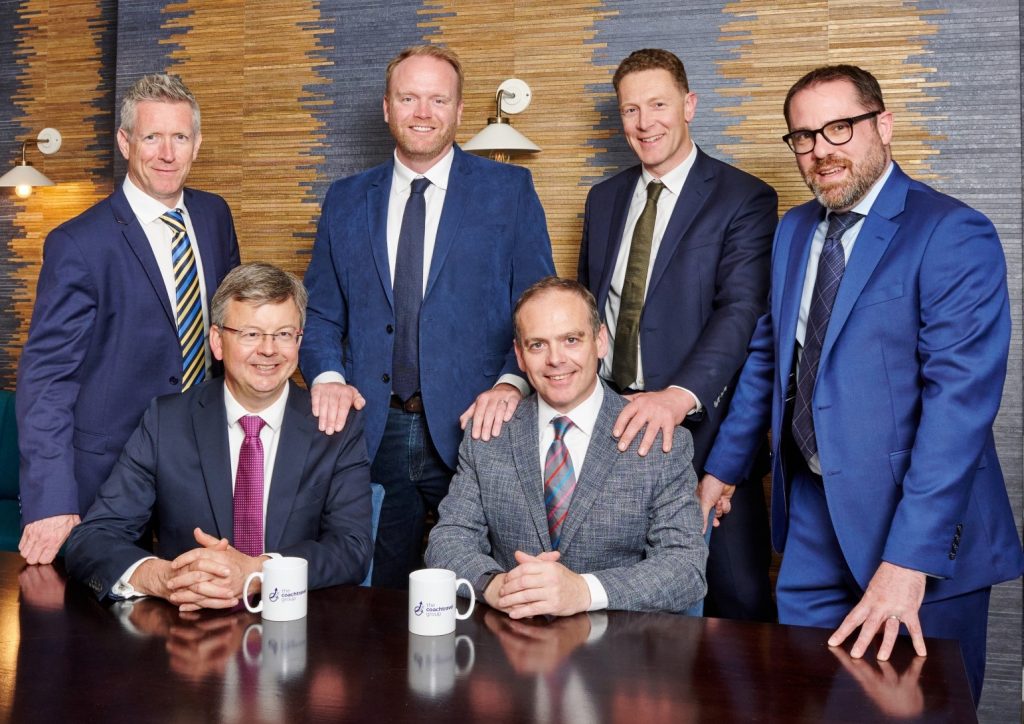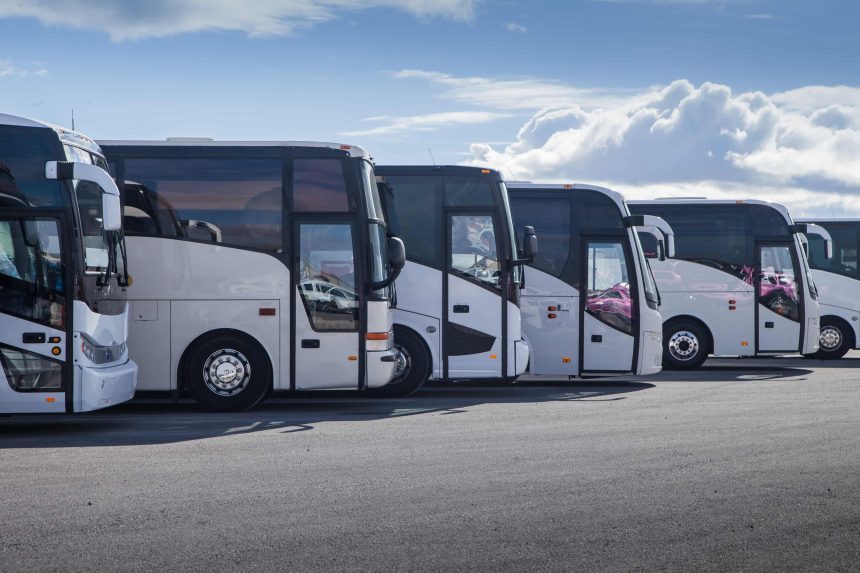“These recent acquisitions grow our position in adjacent services and allow us to enter new regions, which is key to First Bus’ ongoing strategy,” writes a spokesperson for First Bus in response to being asked about its recent coach sector acquisitions of Anderson Travel and Lakeside Group.
That “ongoing strategy” went a step further on 6 November when First further cemented its interest in coach operations by signing up as a FlixBus operator partner. 21 Yutong GT12 coaches will be put on eight scheduled routes over the next year via a five-year partnership and expand FlixBus provision in South West England, Leeds, Manchester and Newcastle-upon-Tyne.
These moves have been one of the most visible recent steps in the trend of coach sector consolidation, which had seemingly peaked in June with the merger of seven operators under The Coach Travel Group, backed by private equity firm H2 Equity Partners. It is by no means a totally new trend; The Coach Travel Group’s Chief Operating Officer Peter Robinson had been working under Go-Ahead Group when the company purchased Dartline Coaches and Pulhams Coaches.
But there is a noticeable momentum in the coach consolidation movement as we approach the middle of the decade. Why coach, why now? Revenue would seem the obvious answer.
According to one coach operator, businesses similar to its own can deliver 14-18% net profit margins, an attractive proposition for any bus companies beleaguered by reform to service delivery under a government that has in many regions set franchising out as its ideal. Coach has good potential for growth. But can it dovetail easily into the portfolio of a bus group or investment firm?
A chance to give something back?
Coach industry consolidation has picked up strongly since the pandemic, with mixed results.
Touromo was launched in January 2023 to grow National Express’s presence in the day trip and holiday market with seven brands under the National Express Transport Solutions portfolio (and Bennetts Coaches of Gloucester) expected to operate Touromo work. Talk had been of a “national presence” in the sector. But less than six months after its debut, a “restructuring and refocusing” of National Express’ business saw the group withdraw holidays and day trips from its brands.
Others have had a similar ambition for a national coach presence, though not necessarily of day trips and holidays. The idea for such a project was formed by James Howells, CEO of Don’t Travel Empty, and Anthony Marett, owner of Marett’s Chariots, following recognition of an opportunity for coach sector consolidation during the COVID-19 lockdown, when an investment company, interested in buying the Don’t Travel Empty business, responded positively to a suggestion that there was room for a national brand of coach company.
“James liked the idea, so we paid to engage a mergers and acquisitions company to help us explore the idea further. We approached another couple of operators, and it snowballed from there.”
Anthony puts the growth in consolidation down to the legacy of coach operators not having an “exit strategy” when it comes time to retire. Much of that stems from a lack of interest in many owners’ children looking for alternative career paths — as well the turbulent time the coach sector faced at the start of the decade.
“The only real option two or three years ago was to shut the doors,” Anthony says. “Don’t Travel Empty users would email us with the same message — that they were retiring, closing the business down and selling their vehicles. There was a stream of cancellations as COVID-19 went on. Most operators felt hard done by, that they were not being looked after by their government, and many told me they would have loved to sell immediately — but there was no-one buying coach companies at that time. Their children didn’t want to run coach companies. We saw an acceleration of long-established operators closing their doors. This felt like an opportunity to give the operators and the industry the chance to realise some money for all that they had built.”
The goal was to bring together a group of such operators that were too small to be sold individually, but became financially attractive if united as a collective. However, Marett’s involvement in the project came to an end, and the operator currently has no plans to become part of a merger.
Coaching looks strong in future?
What, meanwhile, do investment firms stand to gain from coach companies?
“There are a lot of investors — whether private equity funds or high net worth individuals — who want to get into the transport sector right now,” Anthony explains. “There are a number of automotive and energy sector investors that specialise in transport. Traditional companies that make their money through energy or car sales recognise that at some point in the next 30-40 years they won’t have a business; electric and autonomous vehicles hint at a future where car ownership is a thing of the past, so they can see their traditional customer base being eroded. They’re looking for other sectors in transport where they can make some money.”
Technology is certainly one of those sectors. Coaching is appealing to investors right now owing to the diverse nature of the sector. “It’s an attractive hot potato,” Anthony says. “Investment firms have a large choice of independently owned small and medium enterprises, rather than a handful of big conglomerations.”
Is there a specific type of business those investors will show an interest in? Hard to say. Every business is different, every location is different, every owner is different. Tech will play a bigger part in how each of those interact. But some coach companies will be too small to be attractive to a private equity company, while others will be too large to be feasibly bought by another independent operator. Operators in that category will possibly find themselves in the same boat as before — with a profitable business and no succession plan or exit strategy.
Anthony feels like his own business, Marrett’s Chariots, is currently in this position. “My only option right now is to at some point sell all our vehicles and cease to exist,” he says. “Private equity investors are typically only interested in businesses with high growth potential, relatively high turnover, large profit margins and many vehicles. There aren’t too many coach operators in that bracket, and hundreds that fall between the cracks.”
Owner perspective on coach industry consolidation
Chris Owens retired having sold Alpine Travel, the largest independently owned coach tour operator in North Wales, to The Coach Travel Group earlier this year. He reveals he had never been happy with the idea of a large bus group acquiring the Alpine business.
“I didn’t want 40 years of hard work becoming a statistic in a bus company portfolio,” he says. “We spent a lot of time in 2020 working to create an Employee Ownership Trust. I had felt that was a good way for the business to go. A business is about the people you employ and its position in the community. It was not a financially driven decision.
“As time went by it became apparent that wasn’t going to work. We then started to recruit people into a proper management structure. Our last appointment for our Head of Business, a brilliant man named Joe Lewis, said he wanted his skills to improve the business and not report after the fact. We were looking at a management buyout, but Joe picked up on The Coach Travel Group and convinced me of the merits. It fell into place.
“The concept of The Coach Travel Group was that the consolidation would give all operators the opportunity to share work, market smarter, and share resource at busy times. Such an arrangement has the potential to do more work, spread resource and be in a better position for buying vehicles. It brings all the advantages of a big company without the big group mentality.”
Resemblance to bus sector?
There will be a point when consolidation comes to an end, Anthony suggests.
He draws a comparison with the bus sector following deregulation: “This is the closest we have had to that time. That began with many smaller bus operators, and left us with five major groups. I think that is going to happen, to a degree, in the coach industry.
“There will end up being a handful of major players. FirstGroup has set out its stall buying coach companies, and it is correctly retaining the talent within the businesses it has acquired. Other consolidations will certainly continue expanding. On the other end of the market will be distressed companies being bought up by other coach companies that are expanding organically. The optimum size for an independent will probably stay at between five to 10 coaches.”
The Coach Travel Group has been approached for comment.





























